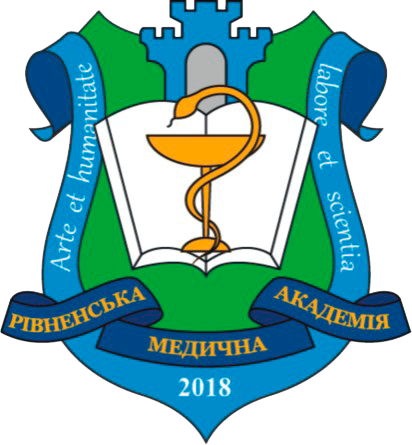OCCUPATIONAL THERAPY FOR ELDERLY PEOPLE WITH WAR TRAUMA
DOI:
https://doi.org/10.32782/health-2025.1.24Keywords:
occupational therapy, development, priorities, rehabilitation, social integrationAbstract
Relevance. In the context of the increasing number of elderly individuals who have suffered injuries during the russian-ukrainian war, ergotherapy is becoming particularly relevant. It contributes to restoring functional independence, improving the quality of life, and facilitating the social reintegration of patients. Ergotherapists assist in regaining lost skills, adapting to new living conditions, and ensuring maximum autonomy in daily activities. The application of ergotherapy in the rehabilitation of elderly individuals with war-related injuries is an important area of modern rehabilitation that requires further research and implementation in practice.Objective – to determine the main directions and strategies of ergotherapeutic approaches in restoring functional independence in elderly individuals who have experienced war-related trauma.Materials and methods. A comprehensive approach was employed in the study to identify the main directions and strategies of ergotherapeutic interventions aimed at restoring functional independence in elderly individuals affected by war trauma. The methodology included a systematic review of scientific literature, analysis of current ergotherapy programs, and expert surveys among practicing ergotherapists.Results. The study identified several key areas for the development of occupational therapy aimed a trestoring the functional independence of older people who have suffered war trauma. These include training of specialists, logistical support, regulatory framework and funding, accessibility of services, and professional development.Training programs for occupational therapists need to be improved, including the integration of specific methods of working with elderly patients affected by the hostilities in Ukraine. Improving the provision of rehabilitation centers with modern equipment and technologies will help to make therapy more effective. It is important to develop and implement a national strategy for the development of occupational therapy that takes into account the specific needs of Ukrainian society, as well as to ensure adequate funding for this area. It is necessary to ensure equal access to occupational therapy services for all segments of the population, especially for the elderly, people with disabilities and those affected by war.Regular training and exchange of experience among practicing occupational therapists will facilitate the introduction of modern evidence-based methods and technologies into practice.Thus, the implementation of these areas will help to increase the effectiveness of occupational therapy and improve the quality of life of older people who have suffered war trauma.Conclusions. Occupational therapy plays a key role inrestoring the functional independence of older people who have suffered war trauma by adapting to new living conditions and improving the quality of their daily existence.Individualized rehabilitation plans that take into account the specific needs and limitations of patients are the basis of effective therapy. Important aspects include professional development of specialists, introduction of modern methods and ensuring accessibility of occupational therapy services for all segments of the population. The implementation of these approaches will help improve the quality of life of older people who have experienced war trauma.
References
“I’ve lost the life I knew” – Summary (Ukrainian). HelpAge International: website. URL: https://www.helpage.org/resource/ive-lost-the-life-i-knew-summary-ukrainian/ (Published 24 February 2023).
Наумець І. Професія, яка повертає до соціуму після травми. Чим займаються ерготерапевти в Україні. iPress. ua : website. Опубліковано 10 серпня 2018. URL: https://ipress.ua/articles/profesiya_yaka_povertaie_do_sotsiumu_pislya_travmy_chym_zaymatymutsya_ergoterapevty_v_ukraini_263267.htm.
Микитин Л.М., Дідоха І.В. Вплив програми фізичної терапії на показники рівноваги в осіб похилого віку з черепно-мозковою травмою. Art of Medicine, 2024. 29(1). С. 108–111. https://doi.org/10.21802/artm.2024.1.29.108.
Rodakowski J., Saghafi E., Butters M.A., Skidmore E.R. Non-pharmacological interventions for adults with mild cognitive impairment and early stage dementia: An updated scoping review. Molecular aspects of medicine. 2015.Issue 43–44. Р. 38–53. https://doi.org/10.1016/j.mam.2015.06.003.
Марченко C., Боголюб М., Левков А. Основні аспекти реабілітації військовослужбовців. Фізична терапія, ерготерапія: сучасні виклики та перспективи розвитку : матеріали Міжнародної науково-практичної конференції (м. Чернівці 15.02.2024 року) / за редакцією Я.Б. Зорія. Чернівці : Чернівецький нац. ун-т, 2024. С. 247–252. URL: https://fr.kpnu.edu.ua/wp-content/uploads/2024/02/zbirnyk-mat.-mizhnar-.konf-15.02.2024-kopiia.pdf.
Реабілітація: фізична, психологічна, соціальна : матеріали міжнародної науково-практичної конференції, м. Вінниця, 17–18 травня 2024 р. / За заг. ред. Г.В. Давиденко. Вінниця : ТОВ «ДРУК»,2024. 408 с. URL: https://mail.vsei.vn.ua/images/Doc/Nauka/Konferentsiya_ta_seminary/zbirnik-2024-reabilitaciya-fizichna_psihologichna-socialna-408.pdf.
Основи реабілітаційної психології: подолання наслідків кризи : навчальний посібник / Л. Царенко та ін. ; за заг. ред. Л. Царенко. Том 2. Київ, 2018. 240 с. URL: https://www.osce.org/files/f/documents/a/c/430829.pdf.
Солтик І.Т. Визначення ключових пріоритетів для розвитку ерготерапії в Україні. Health & Education. 2024. Вип. 2. С. 199–205. DOI: https://doi.org/10.32782/health-2024.2.25.
Kerr Nathan C., Ashby Samantha, Gerardi Steven M., Lane Shelly J. Occupational therapy for military personnel and military veterans experiencing post-traumatic stress disorder: A scoping review. Australian Occupational Therapy Journal. 2020. Volume 67, Issue 5. P. 479–497. https://doi.org/10.1111/1440-1630.12684.
Overcoming barriers to accessing rehabilitation in Ukraine amidst conflict. World Health Organization: website. URL: https://www.who.int/europe/news/item/05-04-2023-overcoming-barriers-to-accessing-rehabilitation-in-ukraine-amidst-conflict (Published 5 April 2023).
Kraft H.S. Rehabilitation and recovery after combat trauma: The new normal work. A Journal of Prevention, Assessment & Rehabilitation. 2015. № 50 (1). Р. 5–7. DOI: https://doi.org/10.3233/WOR-141931.
Eakman A.M., Radomski M.V. Occupational therapy past and present: Responding to physical, cognitive and emotional consequences of war. British Journal of Occupational Therapy. 2017. Volume 80. Issue 12. Р. 697–698. DOI: https://doi.org/10.1177/0308022617712198.
Купріненко О. Аналіз сучасного стану та проблем ерготерапії військовослужбовців Збройних сил України, постраждалих в результаті бойових дій. Український журнал медицини, біології та спорту. 2020. Том 5, № 4 (26). С. 36–43. DOI: https://doi.org/10.26693/jmbs05.04.036.
Oakley F., Caswell S., Parks R. Occupational therapists’ role on U.S. Army and U.S. public health service commissioned corps disaster mental health response teams. The American journal of occupational therapy: official publication of the American Occupational Therapy Association. 2008. 62(3). Р. 361–364. https://doi.org/10.5014/ajot.62.3.361.





